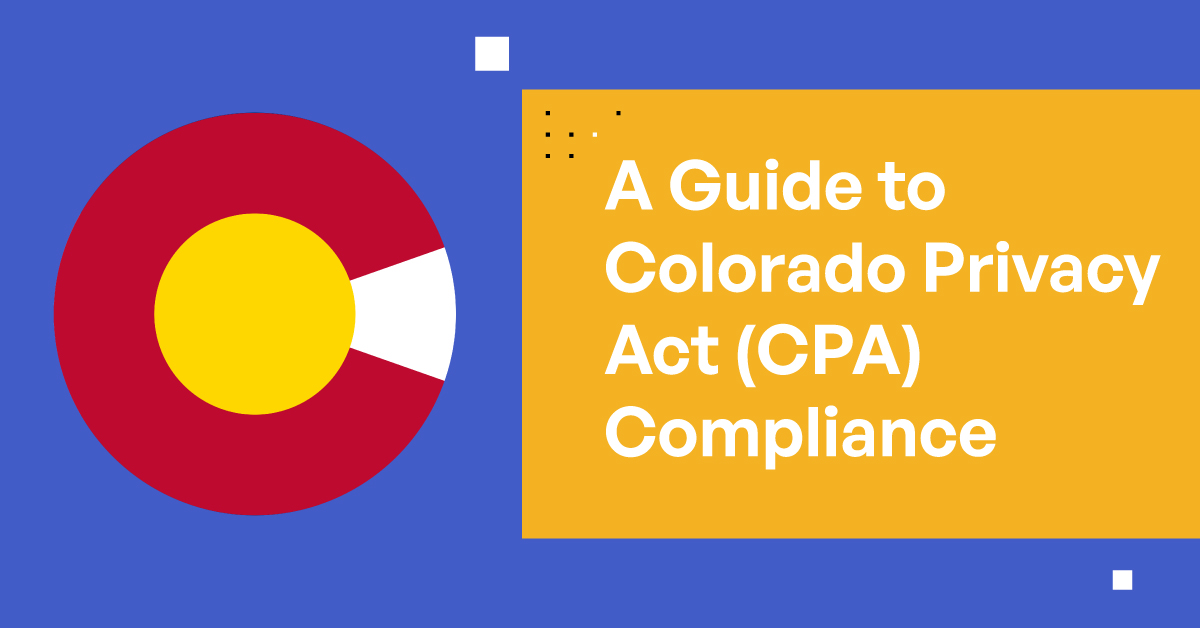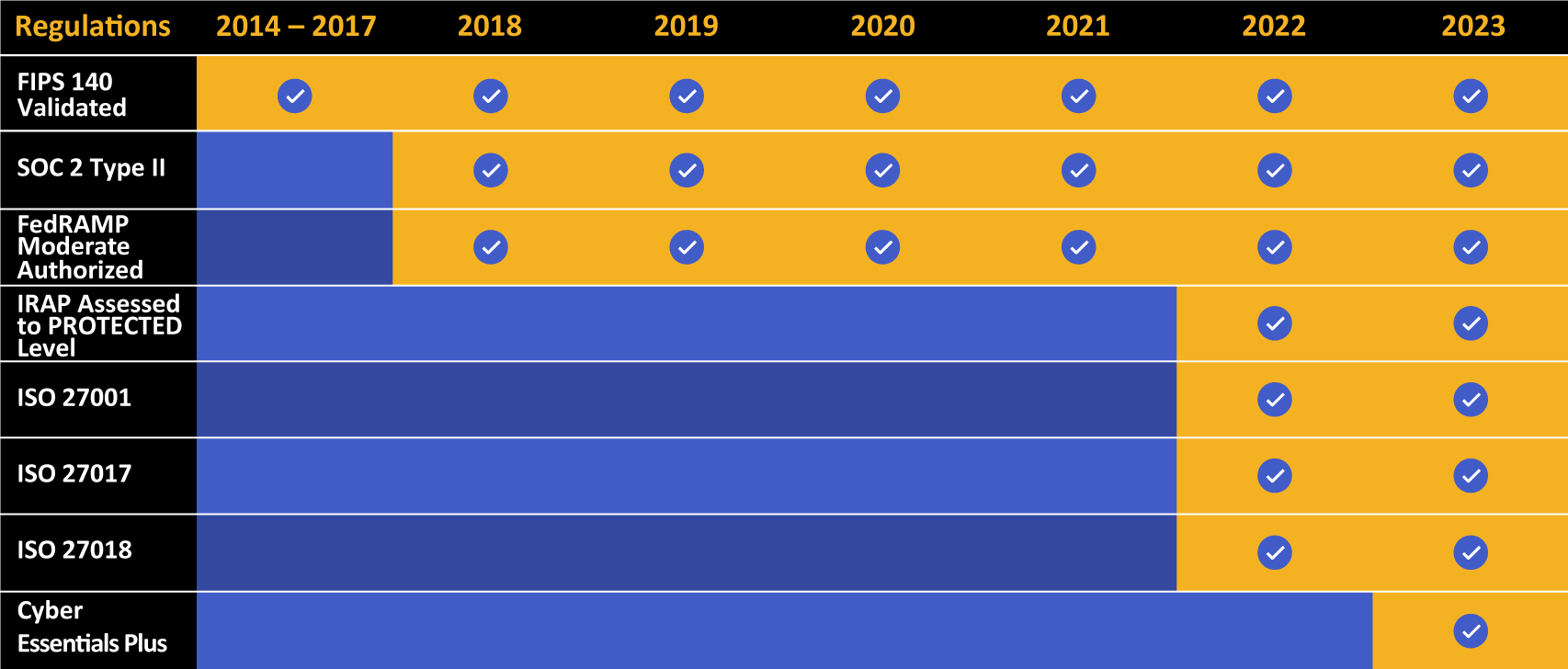A Guide to Colorado Privacy Act (CPA) Compliance
The Colorado Privacy Act (CPA) is a landmark piece of privacy legislation that seeks to protect the private data of individuals in Colorado. With the CPA, the state of Colorado is taking its first step toward establishing a comprehensive privacy framework that will protect its citizens from the misuse of their personal data. The CPA is considered one of the most comprehensive pieces of privacy legislation in the United States, providing Colorado citizens with similar protections that are offered under the California Consumer Privacy Act (CCPA).

What Is the Colorado Privacy Act?
The Colorado Privacy Act (CPA) was signed into law on March 11, 2021. This is Colorado’s first comprehensive privacy legislation, as it sets minimum standards on how data is collected, stored, processed, and used. The CPA seeks to protect the private data of individuals in the state of Colorado and is built upon five main pillars:
- Consumers
- Controllers
- Processors
- Requirements
- Consumer rights
Consumers, Controllers, and Processors Under the Colorado Privacy Act
Under the CPA, consumers are defined as any person located within the state of Colorado whose information is collected, stored, or used, regardless of whether the data is gathered online or offline. The CPA also defines controllers and processors who are responsible for collecting, storing, and processing this information. The data that is protected under the CPA may include online activity, healthcare records, financial information, or biometric data.
The CPA requires controllers to ensure that any information they collect, store, or process on behalf of a consumer is done so in a secure and transparent manner. Controllers are also responsible for notifying consumers if they collect, store, or process the consumer’s personal data.
Processors are the entities that process the data that is collected by controllers. Processors are responsible for complying with the CPA requirements, as well as for keeping the data secure and processing it in a responsible manner.
What Are the Requirements of the Colorado Privacy Act?
The CPA requires that controllers and processors are transparent about how they collect and use personal data and give consumers the ability to access and delete their personal information. Additionally, the CPA requires that controllers and processors keep personal data secure and do not sell personal data without the explicit permission of the consumer.
Under the CPA, controllers and processors must also provide meaningful privacy and security notices to consumers. These notices must include information about the controller’s practices and how the consumer may access, modify, or delete their information.
The CPA also requires that controllers and processors are forthcoming about how they use automated decision-making technologies and must provide consumers with a right to opt out of such automated processing. The CPA requires that controllers and processors must obtain the consent of consumers before collecting or processing personal data that is used for targeted advertising.

Kiteworks touts a long list of compliance and certification achievements.
What Are the Consumer Rights Under the Colorado Privacy Act?
The CPA grants Colorado consumers several new rights, including the right to access and delete their personal information, the right to opt out of targeted advertising, and the right to review automated decisions.
The CPA grants consumers the right to access the personal data that is collected, stored, or processed by controllers and processors. This includes the right to receive a copy of the data, as well as the right to request that their data be corrected, amended, or deleted.
Furthermore, the CPA grants consumers the right to opt out of targeted advertising. This includes the ability to opt out of any automated processing of personal data for the purposes of targeted advertising.
The CPA also grants consumers the right to review any automated decisions that are made about them, including decisions that are based solely on automated processing, such as those made by algorithms.
Who Has to Comply With the Colorado Privacy Act?
The Colorado Privacy Act affects all businesses and entities that collect and store information from individuals living in Colorado. This includes any business that collects personally identifiable information (PII) from customers, such as their names, addresses, Social Security numbers, and other information, or any company that stores such information. Businesses are also required to notify consumers when they collect their data, as well as when they use or share it. Additionally, businesses must allow consumers to access, correct, and delete their personal data. Businesses must also have a process in place to securely store and protect personal data. The Colorado Privacy Act covers all companies—whether based in Colorado or outside of the state—that collect personal data from Colorado residents.
How Are Businesses Impacted by the Colorado Privacy Act?
The CPA imposes several new obligations on businesses that collect, store, or process personal data on behalf of Colorado consumers. These responsibilities include the requirement to provide meaningful privacy and security notices, ensure data is kept secure, provide transparency regarding the use of automated decision-making technologies, and obtain consumer consent before collecting or processing data for targeted advertising.
Businesses must comply with the consumer rights granted by the CPA, including the right to access and delete their personal information, the right to opt out of targeted advertising, and the right to review automated decisions.
Best Practices to Ensure Compliance With the Colorado Privacy Act
Businesses that collect, store, or process personal data of Colorado consumers must ensure that they are in compliance with the CPA. To ensure compliance, businesses should take the following steps:
- Develop or update their privacy policies to comply with the CPA’s requirements
- Provide meaningful privacy and security notices to consumers
- Make sure they are transparent about their use of automated decision-making technologies
- Obtain consumer consent before collecting or processing data for targeted advertising
- Provide consumers with the right to access, modify, and delete their personal data
- Implement measures to ensure that the data they collect, store, and process is secure
CPA vs. CCPA: What Are the Similarities and Differences?
The CPA and the California Consumer Privacy Act (CCPA) share several similarities and differences. Both acts provide consumers with the right to access and delete their personal information, the right to opt out of targeted advertising, and the right to review automated decisions.
The CCPA and the CPA also have some key differences. For example, the CPA does not have the same broad definition of “personal information” as the CCPA, nor does it have the same level of consumer protection or enforcement mechanisms. The CPA also does not grant consumers the right to sue companies for violations of the CPA.
How Will Colorado’s Privacy Act Be Enforced?
The CPA is enforced by the Colorado State Attorney General’s Office. The Attorney General has the authority to investigate and bring enforcement actions against companies that violate the CPA. The Attorney General also has the authority to impose civil penalties of up to $7,500 per violation.
In addition, the CPA grants consumers the right to bring a private right of action against companies that violate the act. This allows consumers to file a lawsuit against companies that violate their CPA rights.
Importance of the Colorado Privacy Act
The CPA is an important piece of legislation that provides Colorado citizens with much-needed protections against the misuse of their private data. The CPA grants consumers the right to access and delete their personal information, opt out of targeted advertising, and review automated decisions. It also requires controllers and processors to be transparent about their practices and keep private data secure.
The CPA is an important step in the right direction for privacy legislation in the United States. It sets the minimum standard for personal data protection and provides citizens with similar protections that are offered under the California Consumer Privacy Act.
The CPA is an important reminder that businesses must be vigilant in protecting the private data of their customers and clients. Consumers must be aware of their rights and businesses must be aware of their obligations. With this in mind, the CPA is an important step in protecting the privacy of Colorado’s citizens.
CPA Compliance With Secure Technology
The Kiteworks platform unifies sensitive content communications—email, file sharing, file transfer, managed file transfer, web forms, and application programming interface (API) protocols—into one channel. Consolidated metadata enables organizations to manage risk and proactively identify potential privacy and compliance issues by applying uniform security and governance policies that track and control where data is going, who is accessing it, and how it is shared. The Kiteworks Private Content Network enables streamlined governance, strict compliance, proactive threat detection, and fast incident response.
For sensitive content sent via email, file sharing, file transfer, managed file transfer, web forms, and application programming interfaces (APIs), Kiteworks provides comprehensive governance, compliance, and security. Schedule a custom-tailored demo to learn more.

